A complete review of Rosetta Stone Mandarin Chinese, including a look at the table of contents and lesson plans. I cover highlights and shortcomings in this post. Thank you to Rosetta Stone for sponsoring this post.
Rosetta Stone Coupon Code
Rosetta Stone offers free online demos on their website. Currently, they're having a summer sale where if you purchase a 24 month Rosetta Stone subscription and get $80 off! All other subscriptions are discounted as well
Click here to redeem. Expires 11/17/17
Is Rosetta Stone for Mandarin a Good Learning Tool?
One of the things that amazes the most when I travel is the ease with which the rest of the world is multi-lingual while Americans can get away with relying on just one common tongue. I love learning languages – yet despite studying three languages throughout elementary, grade school and college, I can’t convincingly say that I’m fluent in anything but English.
Perhaps the biggest regret is not fully mastering Chinese. I grew up in a Mandarin Chinese speaking household and attended Chinese school once a week, every week from elementary school up to high school. At the end of each school year, they ranked each student and every year (except one) I won first place, taking home a giant trophy to boot. The irony is that there were better, more fluent students in the class. I just happened to work hard and have an excellent memory, as the difficulty with Mandarin is that it’s a character based language where memorization of at least a couple thousand characters is required.
Over time, with disuse, I can barely remember how to write certain words. I can speak at a basic level (say, ordering food from a restaurant or giving directions to a taxi driver) and know standard grammar syntax but reading from a restaurant menu? Tough. Having a full-on conversation without peppering in a word of English (or two)? Not quite there.
I decided that a refresher course was in order and opted to take Rosetta Stone. It’s one of the most popular language courses on the market and I liked that they had a mobile app to make learning easy for on-the-go. This is the first time I’ve taken a Rosetta Course, ever, so I was curious as to how it would hold up!
Keep reading for my review of Rosetta Stone Mandarin Chinese!
Rosetta Stone Mandarin Chinese Review
My review is primarily for the Rosetta Stone mobile app (although the lessons automatically sync across all of your devices, so you’re able to access it on desktop as well). I thought the easiest way to organize the review would be to answer some commonly asked questions. Here goes!
What’s the best way to learn Chinese?
It’s tough to pick just one best way to learn Chinese. Even as someone who grew up with native speaking parents, I think it’s a very difficult language to learn. Why?
- There are four distinct tones, which to the untrained adult ear, can be difficult to distinguish.
- There’s also a requirement for sheer memorization. With over 50,000 characters in the Chinese language, you need to learn about 8,000 to consider yourself equal to a native speaker and to read about 2 – 3,000 to read a newspaper.
- Finally, there’s the syntax, which is unlike any Romance language and in fact opposite in many cases to the English language.
So, with all that in mind the ideal Chinese language program must teach you to both listen and pronounce inflections in spoken words, shove an incredible amount of vocabulary at you from the get go and teach you basic grammar patterns in order to learn Mandarin.
How does Rosetta Stone work?
Rosetta Stone is a unique language learning program, focused on stimulating the brain’s natural language learning ability. The software is designed by linguists through an immersive curriculum that does not focus on memorization.
Let me explain: traditional methods focus on teaching a new language through translation and grammar rules in your own language. The effect is that you can’t understand the new language without first thinking in your own. Rosetta Stone believes this extra step inhibits us by making language learning more tedious than it out to be.
Instead, Rosetta Stone’s program is designed to eliminate translation and grammar concepts by focusing on interactive steps which are conducted in the new language from the beginning. Rosetta Stone believes in encouraging the brain’s natural language learning ability and their program comes with some incredible new features that make learning Chinese both fun and immersive:
- Audio companion: listen and learn offline with downloadable audio lessons.
- Stories: immerse yourself even further by reading stories in their original language.
- TruACCENT™: speech recognition technology that listens to you speak and helps perfect your pronunciation.
- Tutoring sessions with native speaking tutors are also available for in-app purchase.
How comprehensive is the Rosetta Stone Mandarin course?
The Rosetta Stone Chinese program is composed of 20 units in total. Here is the course outline:
- Language Basics
- Greetings and Introductions
- Work and School
- Shopping
- Travel
- Past and Future
- Friends and Social Life
- Dining and Vacation
- Home and Health
- Life and World
- Everyday Things
- Places and Events
- Tourism and Recreation
- Professions and Hobbies
- At Home and Around Town
- Style and Personal Wellness
- Business and Industry
- Arts and Academics
- Emergency Situations
- Family and Community
Each unit is then broken down into 4 bite sized lessons, with each lesson focusing on pronunciation, vocabulary and grammar. Rosetta Stone starts with simple 2-character vocabulary words, working its way up to phrases, then sentences and dialogue. For pronunciation, the app speaks words and has you speak them back. For vocabulary, there’s picture matching and for grammar, there’s sentence construction. At regular intervals, there are review lessons to re-test your understanding.
How long does it typically take to learn Chinese with Rosetta Stone?
With 20 overarching units and 4 subdivided lessons per unit, plus additional review courses, the Rosetta Stone Chinese program is quite thorough. It’s designed to enable you to progress at your own pace and you can skip between units and lessons at will, although I do recommend going in order. I like that the app is very user friendly and perfect for those moments when you’re on the go waiting – whether it be at the doctor’s office, commuting or waiting for friends – and I found myself reaching for it all the time instead of playing mindless games like Candy Crush. Because it doesn’t require you to be chained to your desktop, and because I was committed to seeing it through, I was able to finish about 1 unit a week.
How much does Rosetta Stone cost?
Rosetta Stone is a monthly subscription service that grants you access to the entire program at once. You can purchase a 3-month, 6-month, 12-month or 24-month subscription, depending on how long you think it will take to get through the program. Naturally, the 2-year subscription offers the most savings and for all the programs, you can cancel anytime. Check out all the pricing options here.
What I appreciate about Rosetta Stone is that they offer an immediate free demo. Should you purchase the course, you also have 30 days to try out the software and determine if the learning method is suitable. There’s a 30 day money back guarantee as well.
Rosetta Stone Coupon Code
Rosetta Stone offers free online demos on their website. If decide you would like to try a Rosetta Stone annual subscription, you can get $80 off a 24 month subscription here.
Is Rosetta Stone worth the money?
Overall, Rosetta Stone is focused on an interactive-based learning method. This method works well for those who like to get right into the weeds and are bored or frustrated by dry syntax lessons.
The combination of testing pronunciation, vocabulary and grammar help to hit on all the necessary angles which a would-be fluent speaker requires. I like that the app has speech recognition software which understands your spoken Chinese and distinguishes tones. It’s able to gently correct or praise your spoken Chinese and automatically repeats the phrase if it senses you’re stumped.
There is no English in the app at all, so if you have no prior exposure to Chinese it will be more challenging. It assumes that you know the basics (him, her, they) and how to form phrases and sentence construction. It also assumes that you are familiar with the four tones in Mandarin and can distinguish both hearing and speaking them.
I think the Chinese Rosetta Stone program would be especially valuable for those who’ve had formal training with Chinese previously – say through school or courses – and are looking for an intensive, detailed refresher to get their spoken mandarin up to speed.
For someone in my position, who wanted a refresher from traditional classroom taught concepts, Rosetta Stone was instrumental in enhancing my conversational Chinese. Over the course of the (extensive) 20 units, the program covers a huge breadth of vocabulary across multiple subjects, from food to school to everyday life to business, and provides learners with excellent conversational Mandarin abilities.
In summary…
Based on my nine years of textbooks, rote memorization and written exams I had a great foundation for written Chinese but my conversational skills were poor.
Rosetta Stone is a great feature to do the opposite, enhancing spoken and conversational Mandarin through repetition, visual cues and intuition. Imagine you were dropped into a village in rural China, and neither you nor the villager had any language in common. You’d learn over time by communicating, by attributing this word to man and that word to water. Yes, you may mis-translate a word in the beginning or not quite understand a phrase but after repetition and routine, it would come together in the end.
If you’re interested in trying Rosetta Stone, you can find all of the languages they offer and pricing options here.
Try Rosetta Stone
Grab a 24 month Rosetta Stone subscription and get $80 off! All subscriptions discounted until 11/17/2017.
Click here to redeem.

What do you think that universal language will be? Let me know your guess in the comments!
Save this post by pinning it for later!
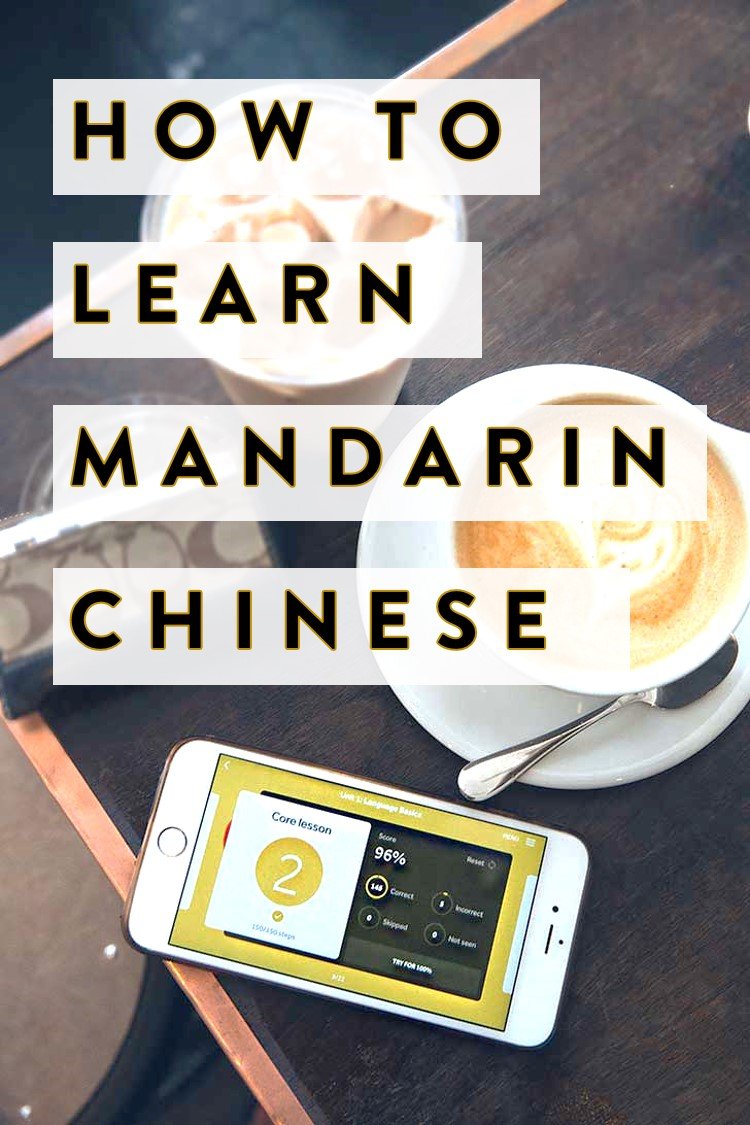
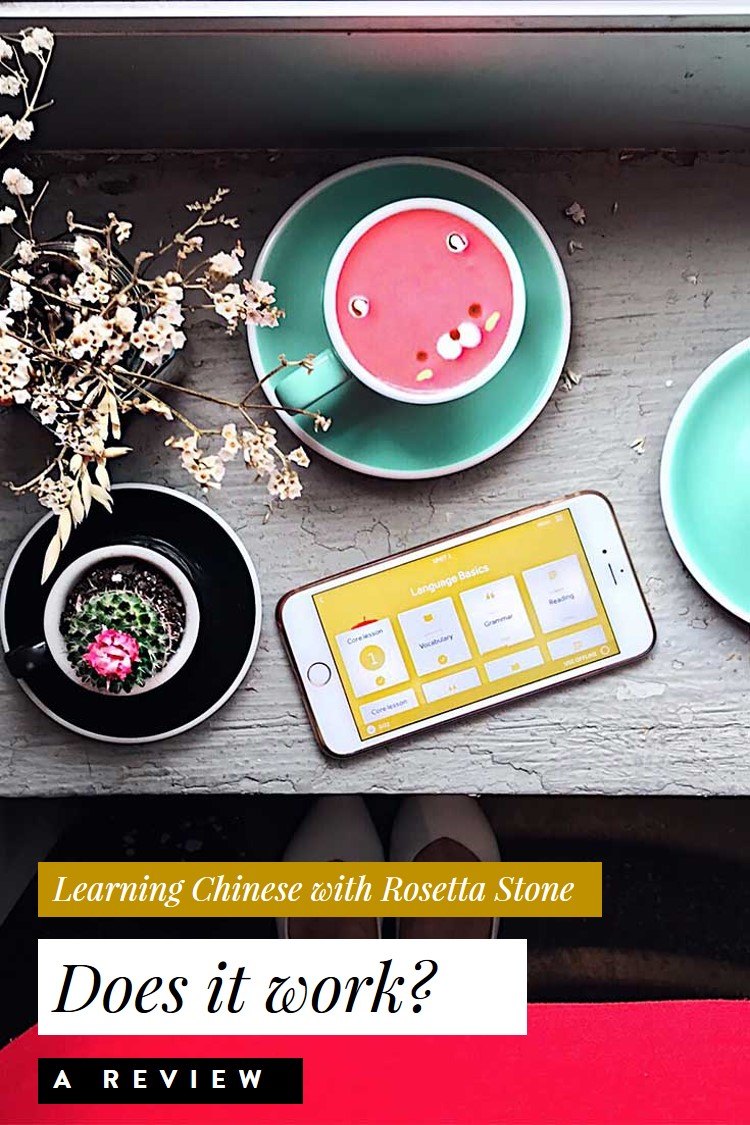
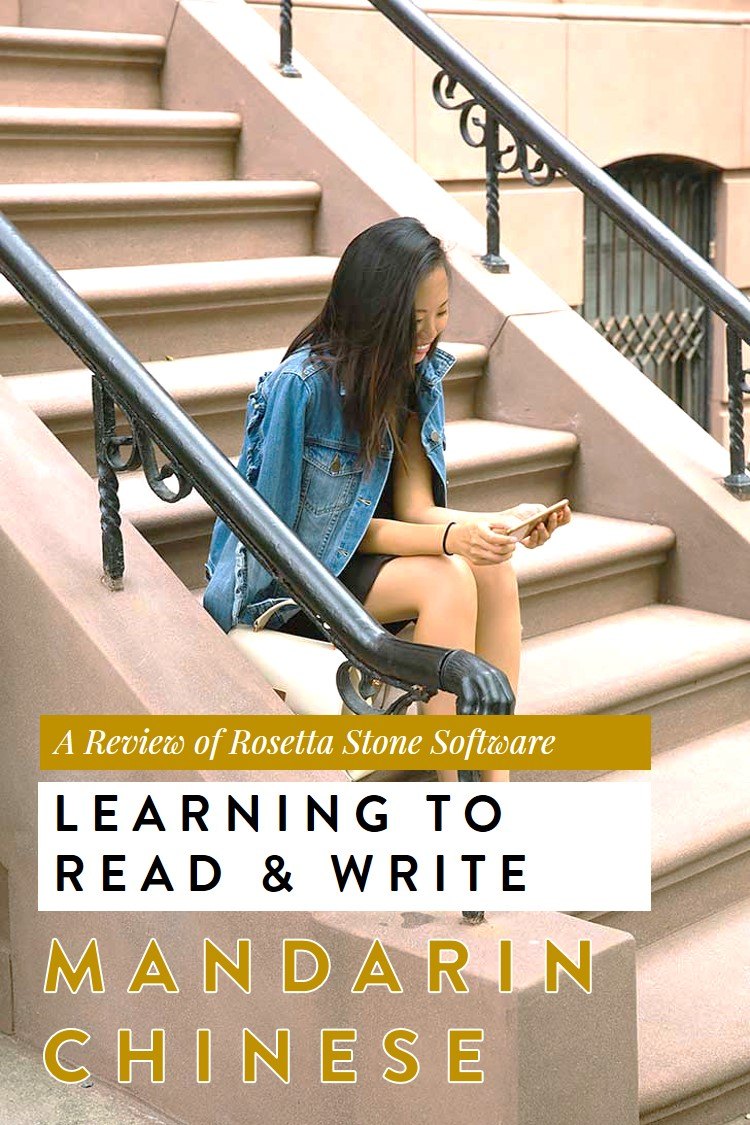


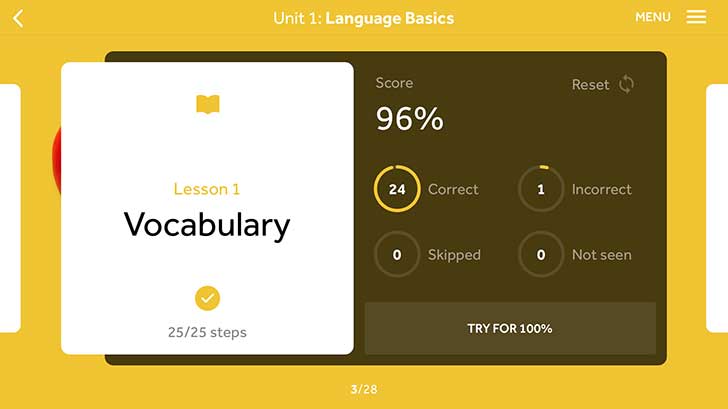
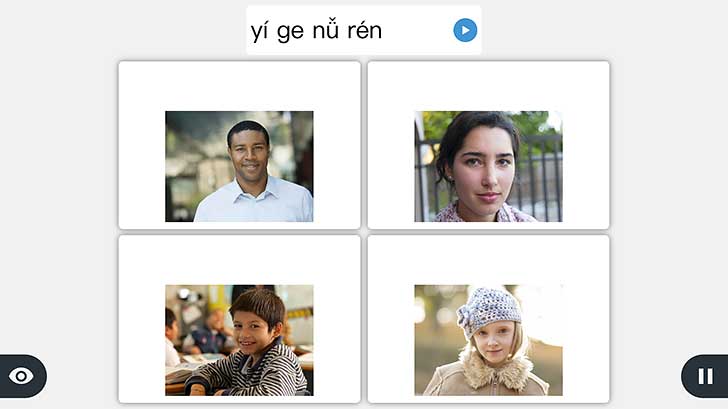






Esperanto was developed to be the language that would replace English over 100 years ago, and I never even heard of it until I got into polyglot groups. Personally, I don’t believe there will be one language and sincerely hope there won’t be. Too much of culture and national identity is wrapped up in languages. If anything, the opposite is true. More people are interested in being multilingual than ever and some are even interested in reviving old languages such as the ones spoken by natives on the North American continent. We already took their languages from them, I think we owe it to them to help restore them.